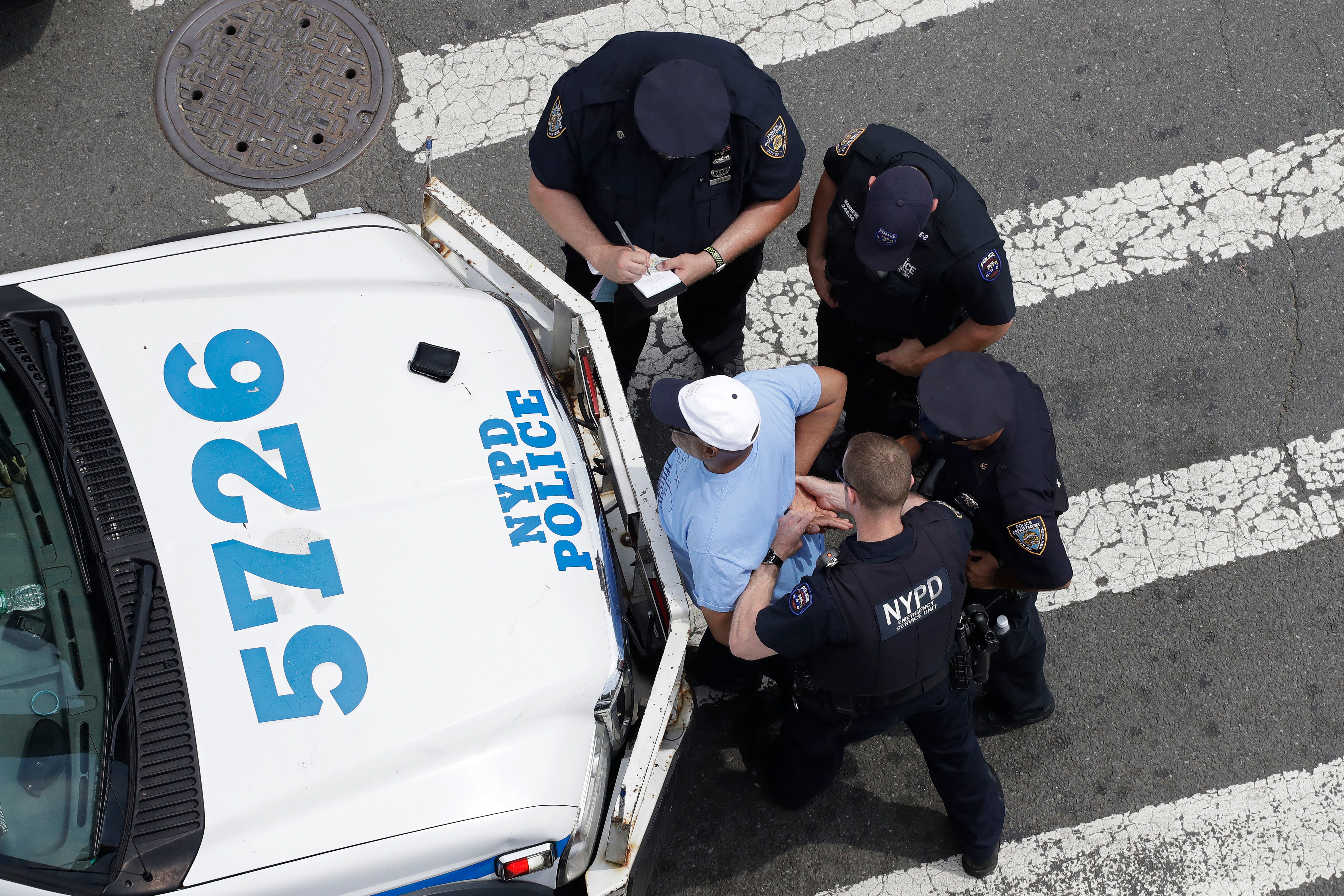Appeals court OKs release of NYC police discipline records
An appeals court says many New York City police discipline records can be made public over union objections

Many New York City police discipline records can be made public over the objections of unions, an appeals court ruled Tuesday in a decision praised by the city and civil rights lawyers as likely to improve the ability of the public to police its police department.
The ruling by the 2nd U.S. Circuit Court of Appeals in Manhattan upheld a decision last year by Judge Katherine Polk Failla.
Unions had opposed a new state transparency law on the grounds that it would unfairly taint the reputations of police officers, endangering them and affecting their future employment.
Hank Sheinkopf, a spokesperson for the New York Law Enforcement Labor Coalition, said the unions will be reviewing all options, including appeals.
He said in a statement that the 2nd Circuit's decision “does not end our fight to protect our members’ safety and due process rights.”
In a summary order, a three-judge panel of the 2nd Circuit agreed with the lower-court judge, finding no evidence that job prospects for officers were harmed in numerous other states where similar records are available publicly.
Mayor Bill de Blasio, a Democrat, had promised to post a database of misconduct complaints online.
In a statement, the mayor said the city looks forward to releasing the data and will seek clarity from the court regarding when the records can be unveiled.
“For the past seven years, we’ve fundamentally changed how we police our city, strengthening the bonds between communities and the officers who serve them. Now, we can go even further to restore accountability and trust to the disciplinary process,” he said.
As to the law that blocked the release of the information previously, de Blasio said: “Good riddance.”
Molly Biklen, deputy legal director of the New York Civil Liberties Union, praised the ruling as “really tremendous,” particularly because “we've seen that the police department is unwilling or unable to police themselves and hold themselves accountable.”
She said the public will now be able to see what the police department does with complaints and how the Civilian Complaint Review Board, a watchdog agency, operates.
“New York historically has kept records incredibly secret and so I think the decision is a really important step for making things public,” Biklen said.
Attorney Tiffany Wright, who submitted arguments on behalf of Communities United for Police Reform, called the decision “a huge win for transparency and for the communities across New York who bear the brunt of police violence and misconduct. Those communities have a right to know the misconduct and disciplinary histories of those policing their streets.”
The Civilian Complaint Review Board had sought to let the public search officer histories on its website.
The Police Benevolent Association, representing New York City police officers, and other public safety unions had challenged the disclosures, particularly those deemed unsubstantiated or unfounded and those in which officers were exonerated or a settlement was reached.
They argued that posting unproven or false complaints could spoil officers’ reputations and compromise their safety while making it more difficult for them to find employment after their police careers had ended.
The controversy arose after New York lawmakers, reacting in part to protests over the police killing of George Floyd in Minneapolis and other police misconduct, repealed a law last year that for decades blocked the public disclosure of disciplinary records for police officers, as well as firefighters and correctional officers.
___
Associated Press writers Karen Matthews, Jennifer Peltz and Michael R. Sisak contributed to this report from New York.
Bookmark popover
Removed from bookmarks